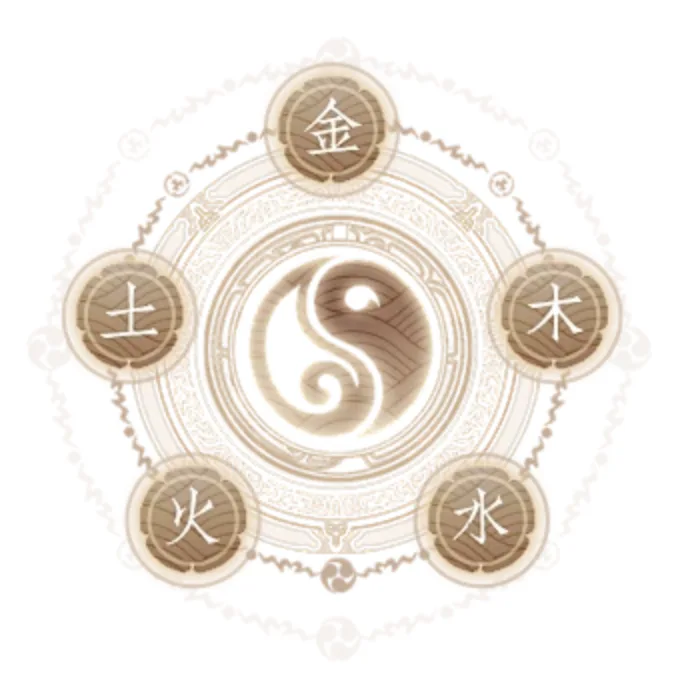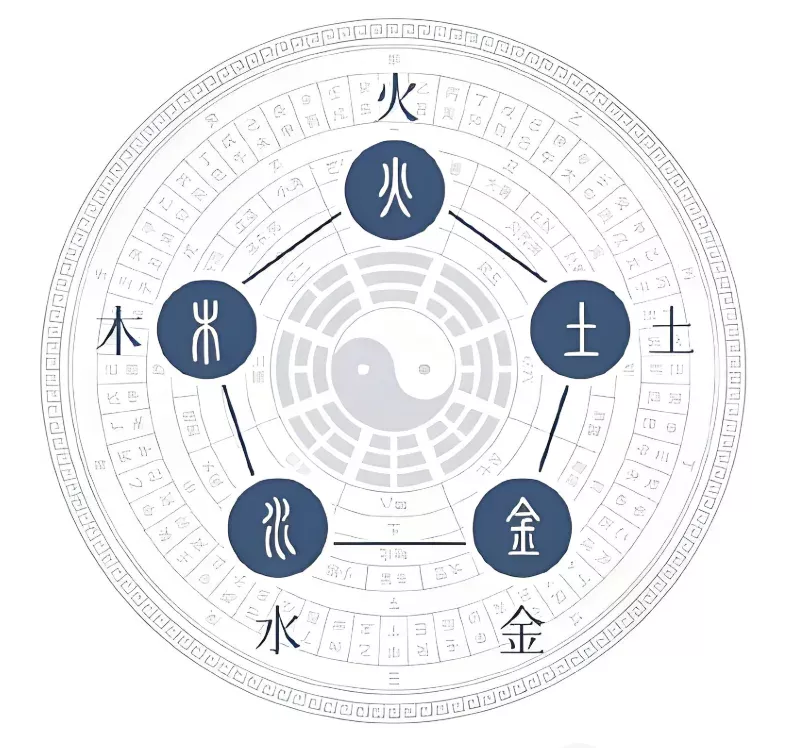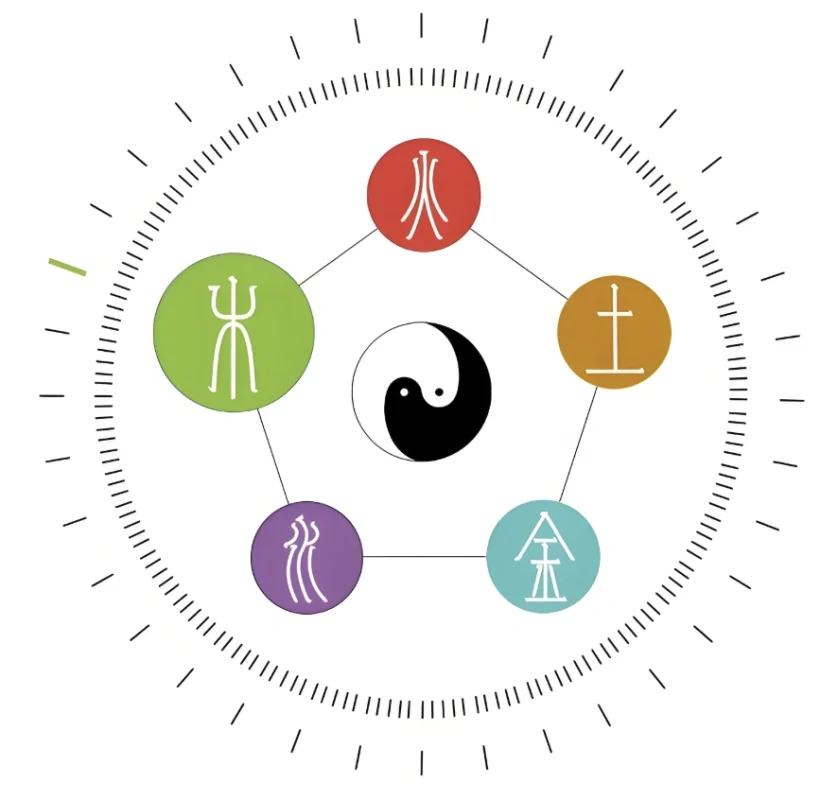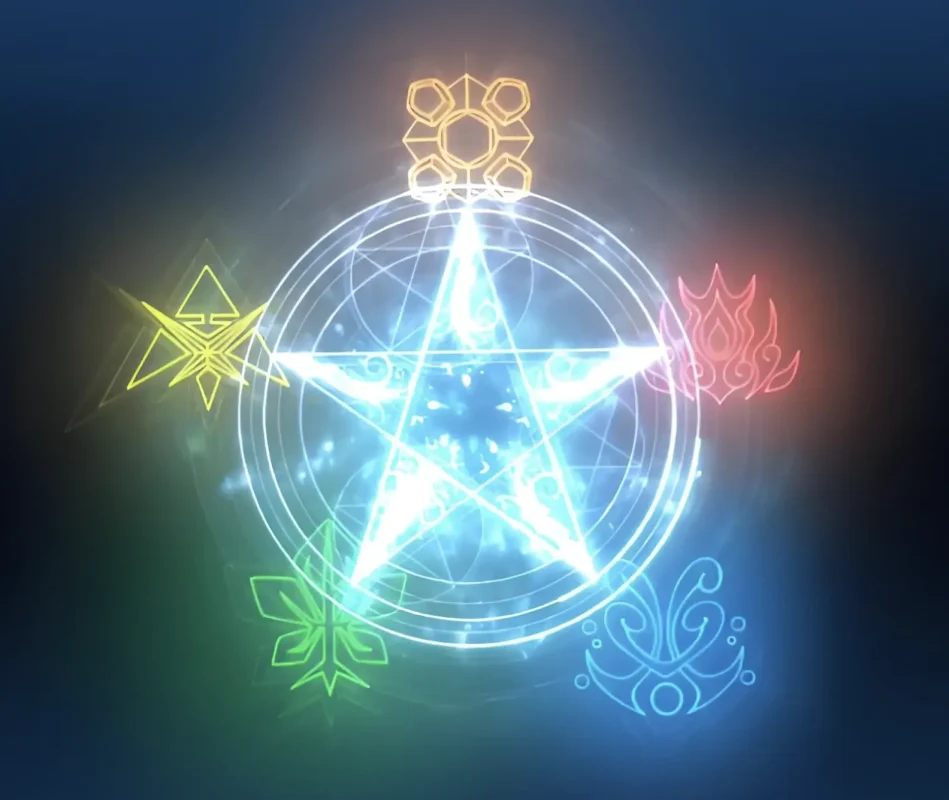In Chinese metaphysics, particularly within the framework of Five Elements Theory (五行), the terms “旺” (Wàng), “相” (Xiāng), “休” (Xiū), “囚” (Qiú), and “死” (Sǐ) describe the dynamic interplay between the elements and their phases. These terms are often encountered in Zi Ping Ming Xue (子平命学), a traditional Chinese method of fortune-telling, which helps interpret […]
Tag Archives: Five Elements
Discover the profound wisdom of the Five Elements culture with yinyangring. Explore how this ancient philosophy can bring harmony and balance to your life. Learn about its origins, principles, and practical applications in a modern context. Dive deep into the elements of wood, fire, earth, metal, and water, and how they interact to create a balanced lifestyle. Join us on this enlightening journey and unlock the secrets of the Five Elements.
In the realm of Chinese philosophy, the concept of the “Mother-Son” relationship is crucial to understanding the dynamics of the Five Elements (Wu Xing). The Five Elements—Wood, Fire, Earth, Metal, and Water—are interconnected in ways that allow for both balance and imbalance in the natural world. The “Mother-Son” relationship specifically refers to the way one […]
In Chinese philosophy, the concept of the Five Elements (Wood, Fire, Earth, Metal, and Water) is not just about the balance of natural forces, but also extends to various human practices, especially traditional Chinese medicine. When discussing these elements, there’s a key relationship known as “mother” and “son,” or “mother-child” dynamics. In this system, each […]
In Chinese thought, the five elements—Metal, Water, Wood, Fire, and Earth—are believed to have dynamic relationships of support and control. The “Encountering Three Leading to a Clash” concept comes from a text called The Origins of Change and highlights a specific interaction among these elements. Here’s how it works: each element typically supports or creates […]
In the traditional Chinese Five Elements theory (Wu Xing), the concept of “overcoming” (相乘) describes how elements exert dominance over one another. This cycle manifests in two ways: “That which overcomes me is like the sky above” (乘我者为天) and “That which I overcome may also break me” (我乘者为折). 1. “That Which Overcomes Me is Like […]
The concept of “mutual harm” in Chinese philosophy isn’t exactly the same as the idea of “too much or too little is wrong,” but it carries a similar theme of imbalance or excess. In the context of the Five Elements, “mutual harm” appears in two main ways: “those who harm me will make me stronger […]
In this context, the abnormal interactions fall into two main categories: These two phenomena are closely interwoven. As the ancient text Sù Wèn · Wǔ Xíng Yùn Dà Lùn puts it in its own poetic way: “When energy (Qi) is in surplus, it restrains what it has already overcome and bullies what it has not; […]
The ancient sages believed that everything in the universe—every process, every phenomenon—has both a creative, life-giving side and a restraining, controlling side. Imagine if every player on the field only knew how to attack without any defense; eventually, the game would fall apart due to sheer overenthusiasm. Similarly, without proper checks, an element that runs […]
Imagine the ancient Chinese concept of the Five Elements—wood, fire, earth, metal, and water—as the cast of a quirky, eternal drama. In this show, there’s a fascinating subplot called “Victory and Recovery” (or “Sheng-Fu”), which describes how these elements, when things go a bit haywire, not only oppose each other but also cleverly balance one […]
The concept of the “Five Elements’ mutual generation and mutual overcoming” primarily serves to maintain the balance and harmony of the universe. This idea originates from the “Suwen · Li Wei Zhi Da Lun”. “Mutual generation and mutual overcoming” means that there is both promotion and restraint among the Five Elements. The law of the […]










